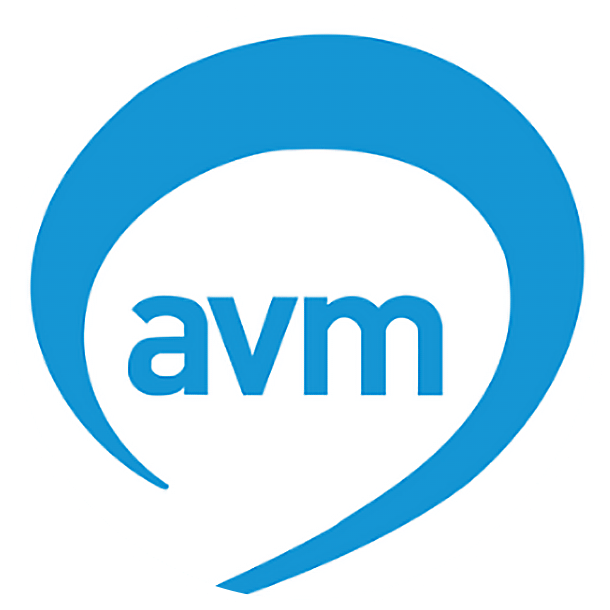After attending AVM’s Networking Event: Embedding a Volunteer Culture within an Organisation Sabine Pitcher reflects on her own personal experience of doing just that at City Lit. Where a volunteer framework will support the strategic direction of the college by directly linking in with some of its key objectives, including bringing people together, enriching lives, and increasing community impact.
A volunteer culture and a volunteer framework go hand in hand.
A volunteer framework puts in writing the mutual commitment, so volunteers know what is expected of them and how they will find the appropriate support, ensuring that the volunteering experience adds value both to the volunteers and the organisation.
I have been working at City Lit since 2008, where nearly 30,000 adults study with us each year, most on very short courses. We offer more than 5,000 courses in total and pride ourselves on being able to cater for a whole range of sometimes quite complex access needs. Formerly Head of Student Services, I have been looking into how we can set up a volunteering framework across the college.
We have a long tradition of involving volunteers in a handful of small areas – e.g. giving ESOL students extra support with their reading or helping out at community events. Across the college, these initiatives are often not well-known and there is little imagination for what else volunteers could be involved with. I’ve always thought that’s a shame – and a missed opportunity.
City Lit is so varied and diverse that there is a lot we can offer potential volunteers. And they could help us broaden the scope of services and initiatives we provide to our students. So I have started to talk to colleagues across the organisation about their ideas and needs, and what we would need to have in place in terms of a support structure.
It turned out to be a bit of an uphill struggle.
While the initial conversations were positive – it helped that I knew colleagues from my previous role – as usual, the devil proved to be in the detail. In an organisation like ours volunteering isn’t top of anybody’s agenda and just getting everybody I’d spoken to individually to a joint meeting was a hurdle. With no immediate need, the success of the project will depend on persistence and perseverance and finding ways to illustrate to colleagues that, yes, initially they will have to put in a bit of work, but they will get something in return. This approach works if this “something” is important enough to them and isn’t overtaken by other priorities or changes.
On the plus side, I have now done nearly all the leg work. I have done my research and spoken to people in other organisations about their volunteering experiences and structures. I have drafted a framework, discussed it with colleagues, produced templates for role descriptions and done all the other “back-office” preparation. Some colleagues might have experienced this as an impingement on the way they have handled volunteering in the past – they feel that it takes their autonomy away and doesn’t do justice to their volunteers. Others, however, saw the benefits in integrating and sharing experience and expertise. In an ideal world, they would all have been involved in all the different stages, but time is usually precious. Getting them all into a room just once was a major achievement.
A framework will eventually add transparency and also ensures that knowledge and information is shared and not held by just one person with whom it could get lost. A framework doesn’t have to be a “one size fits all” – it can still allow for flexibility. This is something which we’ve explicitly agreed, for example with regards to the extent of detail in role descriptions.
My advice? Persist and persevere…
What is a volunteering framework?
It takes time to develop a framework and gain consent from all the various stakeholders in your organisation. But once it is in place, it will make your life a lot easier, and will provide a point of reference for your volunteers as well as for everybody in your organisation. Such a framework will clarify roles and responsibilities and set expectations by addressing the following elements:
- Rationale – what does the organisation gain? What is the value volunteers contribute?
- Benefits of volunteering – what experience will volunteers gain? How does it benefit their development?
- Relationships – how do volunteering roles sit within or alongside paid roles? Is there transparency and appreciation?
- Volunteering roles – what is expected of them? What is the scope of their contribution? And how are they being recruited?
- Training and support – who provides the induction? Who can volunteers turn to if there are any problems? What training do they have access to?
- Reward structure – how are you celebrating volunteers? Are you taking them out / can they benefit from free courses / are their achievements being made public internally?
- Expenses – can you ensure that reasonable expenses are being paid in a timely manner? And what would those be in your specific context?
- Management and coordination – who is in charge of the volunteering schemes? Who coordinates the volunteers and who makes decisions?
- Communication – volunteers might not be “active” all the time; how are they being kept informed? Are they included in staff communication?
- Volunteer involvement – do volunteers have an opportunity to contribute to the further development of the volunteering scheme?
- Conflicts –is there a process to deal with conflict, e.g. volunteers not adhering to boundaries, or complaining about not having been accepted for a particular role? What is the protocol for volunteers to report about bullying or mistreatment (by colleagues or by your clients)?
- Reporting – there should be a way to regularly update others in your organisation on the work of volunteers and gather feedback. (Don’t wait until you’re asked for this information.)
I would also strongly recommend that you include your unions in the debate – they can support the integration of volunteers into your staff team, and they will appreciate reassurance that no paid work is being replaced. They can also help to ensure that you have appropriately identified the benefits to the volunteers.
Don’t feel afraid to seek legal advice if ever you are in any doubt – your organisation will have a contact.
Last but not least… your volunteering framework needs a budget.
How to you get all that established?
This assumes that either you don’t yet have a volunteering scheme or there’s a need to make changes.
In many instances, the contributions volunteers make are vital for the organisation to deliver its services. There is no benefit in downplaying the gain to the organisation. On the contrary, you need to be able to prove what this gain is – your senior team might appreciate if you can express this in monetary terms. This can include funding you wouldn’t otherwise be able to attract; elements of your service for which there is no other funding available; service users you would potentially lose as a consequence; outcomes for your service users that would either improve through volunteers or deteriorate without them. And don’t forget to highlight how the work of your volunteers sits within your organisation’s strategy and goals. (If it doesn’t, this might be a debate worth initiating.)
In order to ensure that processes and procedures are adhered to, my recommendation will be to involve HR – e.g. in the initial stages of recruitment and delivering a central induction. As an organisation, we would want all our volunteers to be ambassadors of City Lit and to understand our culture and values. A dedicated volunteer manager would then work across the different departments. Depending on the scope, there might be several (part-time) volunteer managers, and different approaches might be pursued for different areas of volunteer engagement. However, I will suggest a central point of contact who stays in touch with volunteering organisations (networking is vital), disseminates information, updates documents, ensures that volunteers feel engaged etc. There’s only one thing worse than having no framework/documentation – and that’s to have outdated ones.
We are in the lucky situation to have a student counselling service. The lead counsellor will provide an additional point of call for volunteers, in addition to colleagues and managers in the various departments. This could take the form of moderated peer-support or individual mentoring where this is suitable and appropriate.
Our strategy and processes are still only in draft form, but feedback from colleagues has, so far, been positive. The challenge is to get colleagues to commit to the next steps. These include drafting role descriptions, agreeing on responsibilities and suggesting recruitment periods and are all things that can’t be decided centrally. Once the framework is completed, I foresee a section on our website “Volunteering at City Lit”. (At present, there are three separate sections and they aren’t easy to find.)
I would like to thank the AVM and the wider network for their support and inspiration. I will take my personal experience into my new job and will certainly continue to promote their work
Sabine will now be leaving City Lit and will hand over her responsibilities to the student experience team. Sabine can also be found on LinkedIn.





